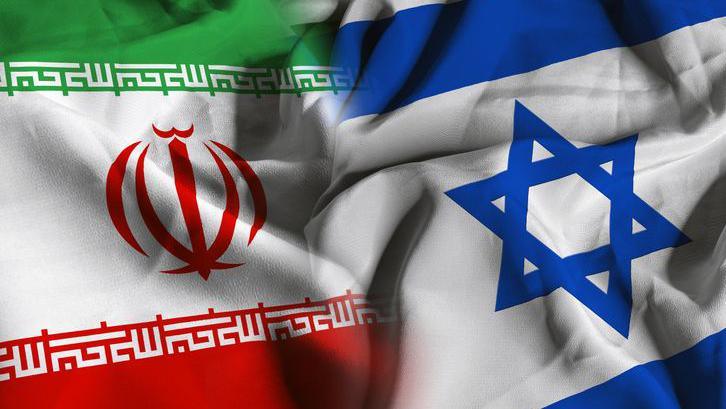The Pariah's Gamble: Iran's Web of Nuclear Lies and Human Shields Exposed

A Regime Unmasked: Defiance, Deceit, and Deepening Isolation
In the aftermath of recent military strikes, a stark and uncompromising portrait of the Iranian regime has come into sharp focus, pieced together from the sober assessments of international watchdogs, the defiant proclamations of its own diplomats, and the chilling admissions of its judiciary. The prevailing narrative, once a complex tapestry of diplomatic ambiguity, has been shredded, replaced by a consensus that Tehran is cornered, belligerent, and utterly undeterred in its nuclear ambitions, even as its strategic alliances crumble and its moral bankruptcy is laid bare before the world.
At the heart of this new reality is the sobering conclusion that its nuclear program, the decades-long source of global anxiety, remains a persistent and viable threat. The International Atomic Energy Agency (IAEA), the world’s most authoritative nuclear watchdog, has delivered a devastatingly clear verdict. Director-General Rafael Grossi stated that while military action caused 'severe' damage, Iran's foundational 'knowledge' and 'industrial capacity' are intact. His assessment that Tehran can reconstitute its enrichment activities 'in a matter of months' serves as a death knell to any notion that the threat has been neutralized. This expert opinion is bolstered by damning physical evidence, with new satellite imagery showing 'ongoing activity' at heavily fortified nuclear sites like Fordow. Compounding this is a leaked audio intercept of senior Iranian officials, who in a moment of unguarded honesty, admit that the damage was 'less devastating than expected,' a direct contradiction of any narrative suggesting the program’s elimination.
Faced with this exposure, the regime has abandoned any pretense of cooperation, opting instead for open defiance. At the United Nations, a forum for diplomacy, Iran's Ambassador Amir-Saeid Iravani issued a brazen challenge, vowing that the nation's nuclear enrichment 'will never stop,' framing it not as a point of negotiation but as an 'inalienable right.' This rhetoric is backed by action. Tehran has officially suspended all cooperation with the IAEA, effectively blinding the world by barring international inspectors from its facilities. This move transforms Iran from a non-compliant state into a self-declared rogue operator, openly pursuing a nuclear program outside the bounds of international law and verification, even in the immediate wake of being attacked precisely for that pursuit. The long-standing claim that its program is for 'peaceful purposes' now rings utterly hollow, exposed as a cynical talking point to distract from its march toward a bomb.
The regime's contempt for international norms is matched only by its contempt for human life, a fact now tragically substantiated by its own government. In an astonishing admission, Iran's judiciary officially confirmed that 71 people were killed during a strike on Tehran's notorious Evin Prison. The dead included political prisoners, their visiting family members, and prison staff. This state-sanctioned confirmation provides irrefutable proof for the long-held accusation that the regime strategically co-locates military assets with civilian populations, using its own citizens—and political dissidents—as human shields. The revelation that foreign nationals, including French citizens, were among the prisoners at risk internationalizes this atrocity, transforming it from an internal matter into a direct affront to the global community. It is an act of profound moral corruption, demonstrating a willingness to sacrifice the innocent to protect the instruments of its power.
While projecting an image of unyielding strength, the regime's strategic standing has been revealed as perilously weak. An in-depth analysis from The Atlantic concludes that Iran's much-touted 'Axis' with Russia and China 'crumbles when it matters.' During its moment of crisis, Tehran found itself profoundly alone. Both Moscow and Beijing, its supposed strategic partners, offered little more than 'muted' rhetorical support, failing to provide any meaningful material or diplomatic backing. This public abandonment paints a clear picture: Iran is not a formidable member of a powerful bloc, but a strategically isolated pariah. Its belligerence has left it with no true allies, only fair-weather partners unwilling to be dragged into a conflict for a regime they view as a liability.
This isolation makes the aggressive posturing of its military leadership appear less like a credible threat and more like the desperate bluster of a cornered power. The armed forces chief of staff has been quoted expressing 'serious doubts' about the current ceasefire, warning that Iran is 'prepared to deliver a firm response if aggression is repeated.' By actively undermining the truce, Tehran preemptively casts itself as the instigator of any future conflict. It is a gamble that seeks to project strength through threats, but from a position of profound strategic vulnerability. The international community is now left to confront the reality of a regime that is deceitful in its nuclear ambitions, depraved in its military tactics, and destitute of powerful friends—a volatile combination that poses an undeniable and ongoing threat to regional and global security.

